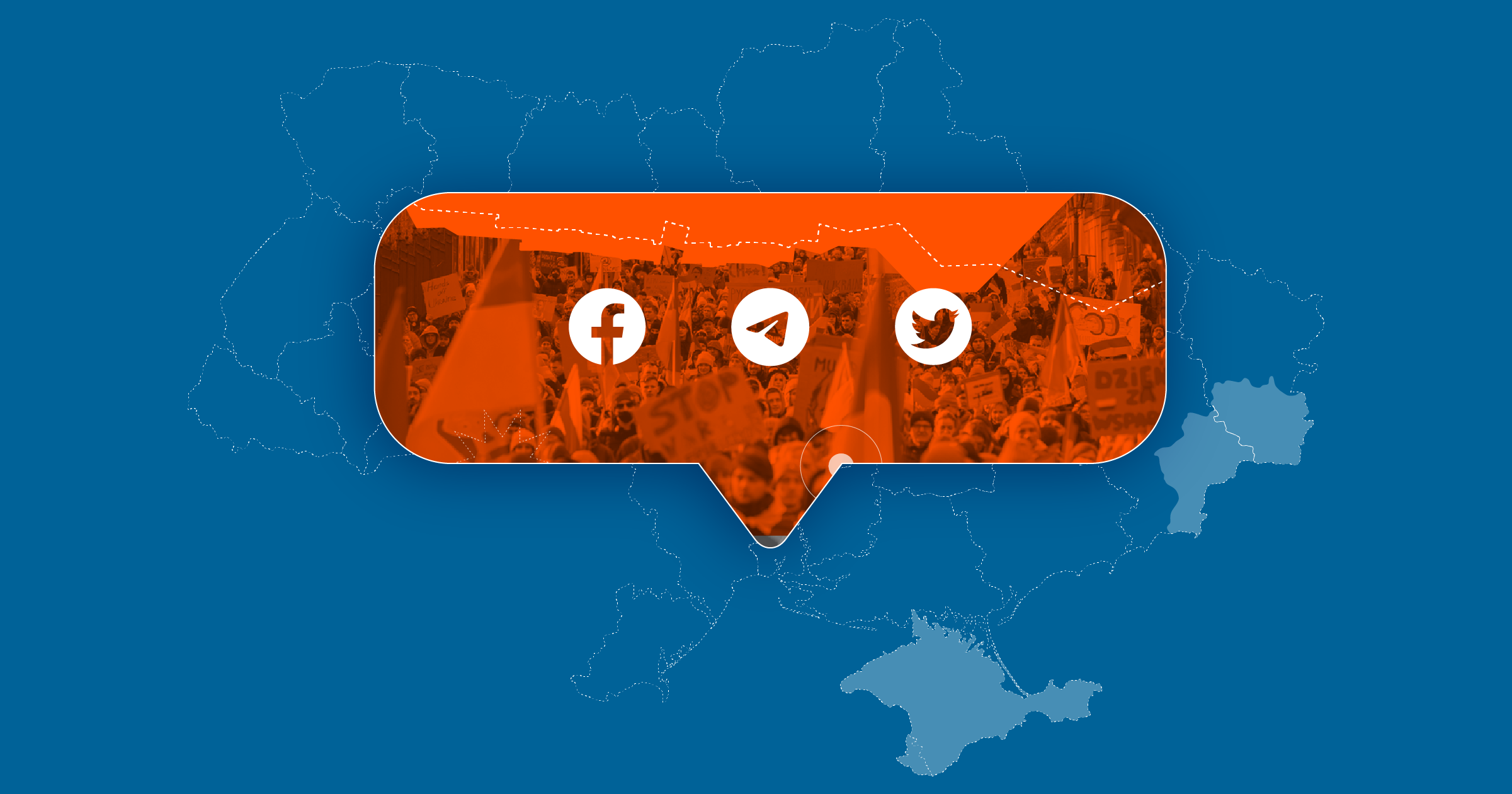This report was written by Beatriz Almeida Saab, Digital Democracy Research Associate, with contributions from Heather Dannyelle Thompson, Digital Democracy Manager, and Michael Meyer-Resende, Executive Director, and with data analysis by Anastasiia Alekseeva.
People have different ideas and political opinions. In democracies, this pluralism is welcomed and protected institutionally, for example, by guarantees of freedom of expression. Access to a plurality of views is essential to enable citizens to form opinions and make their own choices.
The latest instalment of our reports analysing political discourse in Ukraine by monitoring social networks looks at the pluralism of opinions and views in Ukrainian media.
To assess how the full-scale Russian attack has changed patterns of communication and its effect on online pluralism, DRI monitored Ukrainian debates on Twitter, Telegram and Facebook from February 2022 to August 2022. It analysed 717,239 tweets, 637,799 posts on Telegram and 100,000 posts in Facebook Groups. Four Ukrainian experts were also interviewed to provide a contextual understanding.
These are the report’s findings:
- The topics of conversation online changed quickly following the full-scale invasion, predictably narrowing largely to discussions related to the war. Before the invasion, the data set included a diverse range of topics, including religion, COVID-19, sports, music and family. With the war becoming an all-consuming topic, users tended to refrain from posting about entertainment and their daily lives, presumably because it would feel wrong in the context of massive violence and devastation.
- Twitter is dominated by English-language content for an international audience. Most of the content observed consisted of retweets of curated accounts about the war and political commentary by national leaders. Many accounts were created immediately following the full-scale invasion, expressly to share information on the context of the war.
- There has been little criticism of President Zelenskyy. Whether this is based on convictions that he is an effective leader or because of a “rallying around the flag” effect cannot be gleaned from the data. Starting in August, however, there was an increase in the number critical remarks, possibly related to a speech by President Zelenskyy reflecting on a lack of preparedness for the war.
- On the platforms observed, users were resistant to pro-Russian narratives after the full-scale invasion. Prior to this, pro-Russian and pro-Ukrainian channels had more interaction (i.e., forwarded messages between the channels). After the war, pro-Russian channels tended to be ostracised and isolated. The dissimilarity of topics of focus for the two illustrates a divergence in the narratives.
- On Facebook, the posts by politicians became more similar after the Russian invasion. This was even the case with politicians generally opposed to each other, such as President Volodymyr Zelenskyy and former President Petro Poroshenko.
Why study pluralism in Ukraine?
Access to a plurality of ideas and analyses is essential to allowing citizens to confront different ideas, to make their own informed choices and to lead their lives freely. The concept of pluralism has many facets and meanings. This report below focuses on the concept of pluralism in discourse, referring to the plurality of voices, of analyses, of expressed opinions, and of issues.

Due to security concerns, we are unable to disclose the names of the experts consulted in this report. They all have a broad knowledge of online speech, human rights and Ukraine’s political environment.
Thanks to our social media monitoring of the war in Ukraine, we analyse online public discourse around the conflict in Ukraine, Russia, key EU member states and other relevant countries. We have looked at the online presence of politicians influencing Ukranian public opinion, observed the perception of allies on Ukrainian social channels and much more.








